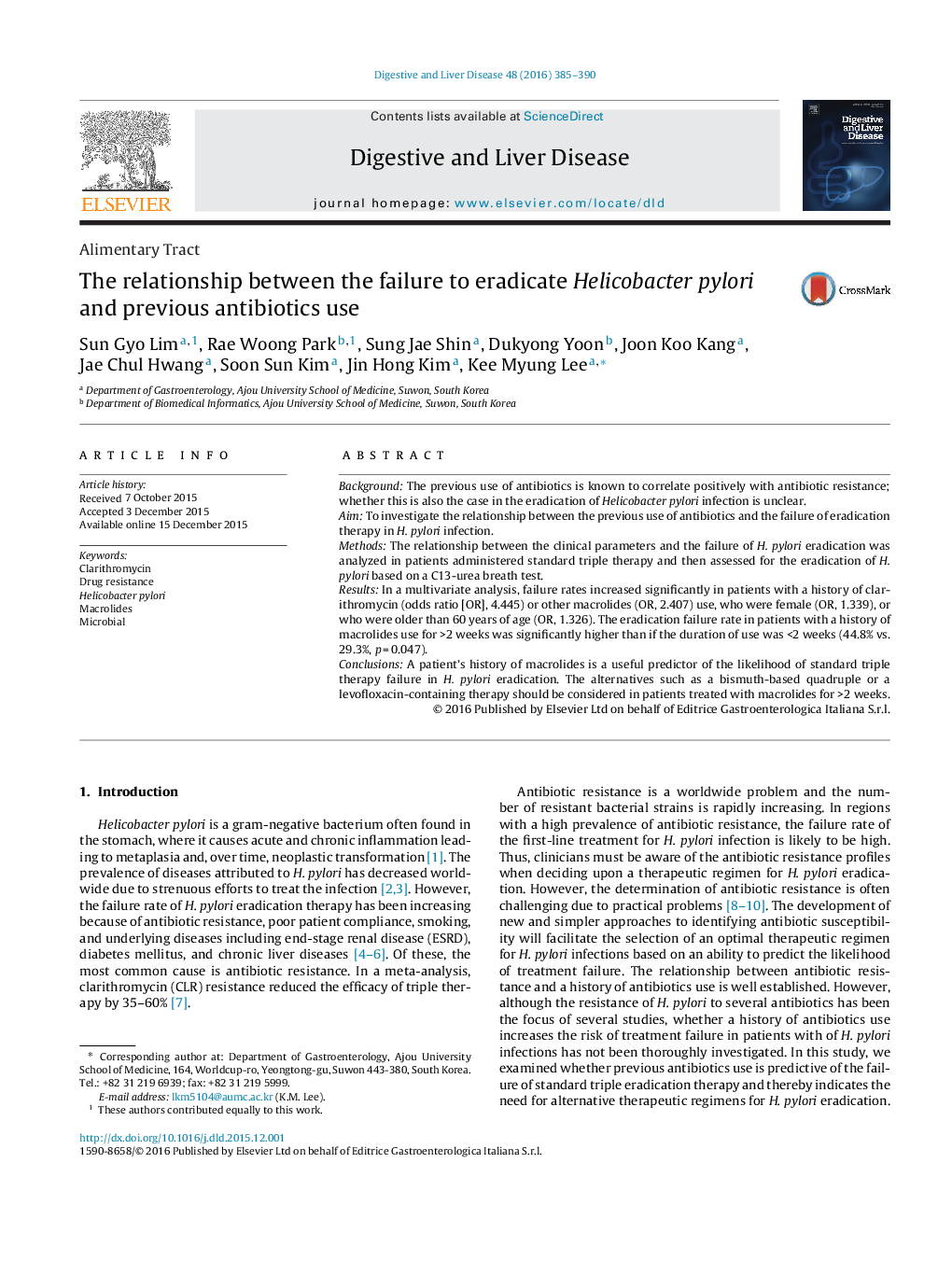| کد مقاله | کد نشریه | سال انتشار | مقاله انگلیسی | نسخه تمام متن |
|---|---|---|---|---|
| 3261467 | 1207694 | 2016 | 6 صفحه PDF | دانلود رایگان |
BackgroundThe previous use of antibiotics is known to correlate positively with antibiotic resistance; whether this is also the case in the eradication of Helicobacter pylori infection is unclear.AimTo investigate the relationship between the previous use of antibiotics and the failure of eradication therapy in H. pylori infection.MethodsThe relationship between the clinical parameters and the failure of H. pylori eradication was analyzed in patients administered standard triple therapy and then assessed for the eradication of H. pylori based on a C13-urea breath test.ResultsIn a multivariate analysis, failure rates increased significantly in patients with a history of clarithromycin (odds ratio [OR], 4.445) or other macrolides (OR, 2.407) use, who were female (OR, 1.339), or who were older than 60 years of age (OR, 1.326). The eradication failure rate in patients with a history of macrolides use for >2 weeks was significantly higher than if the duration of use was <2 weeks (44.8% vs. 29.3%, p = 0.047).ConclusionsA patient's history of macrolides is a useful predictor of the likelihood of standard triple therapy failure in H. pylori eradication. The alternatives such as a bismuth-based quadruple or a levofloxacin-containing therapy should be considered in patients treated with macrolides for >2 weeks.
Journal: Digestive and Liver Disease - Volume 48, Issue 4, April 2016, Pages 385–390
